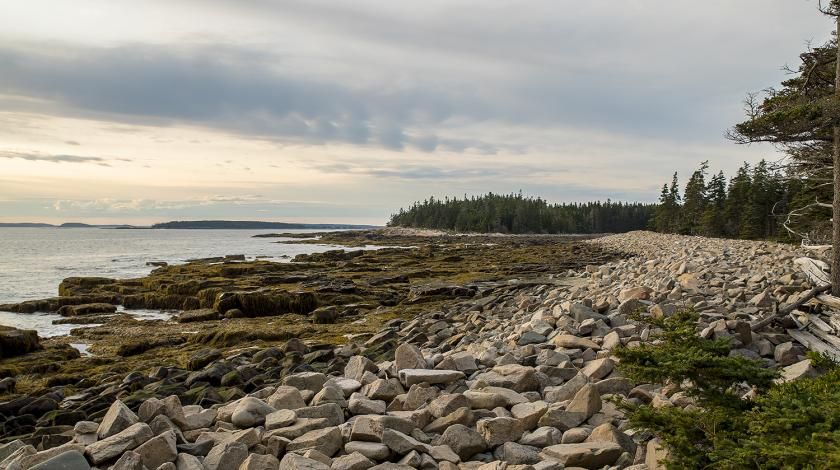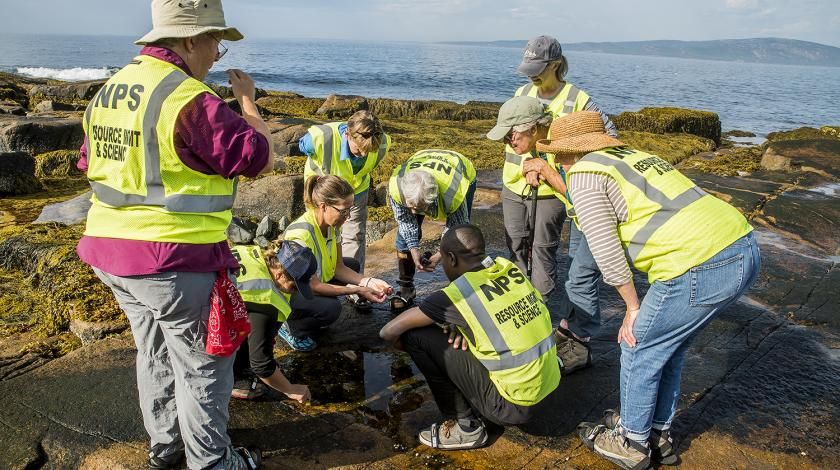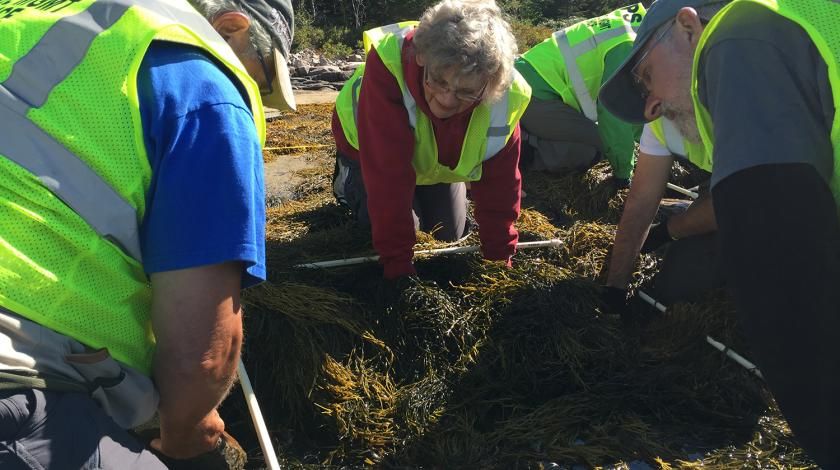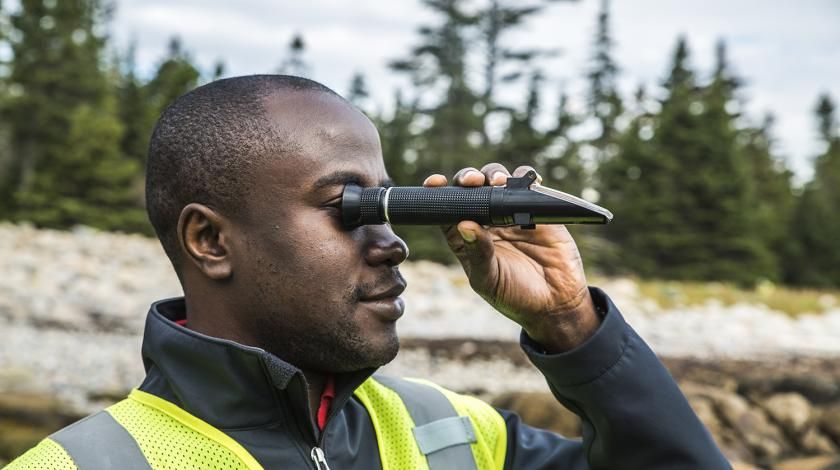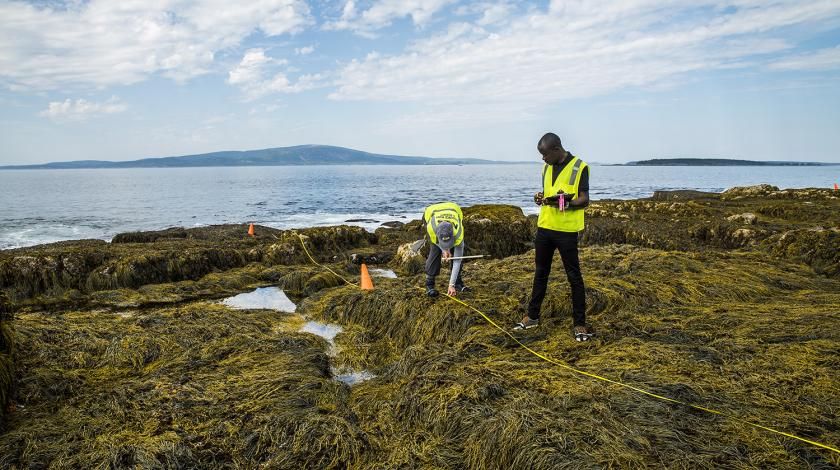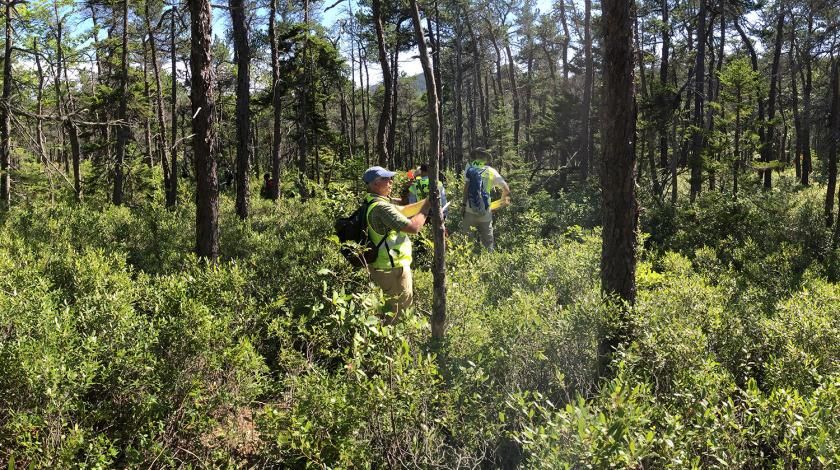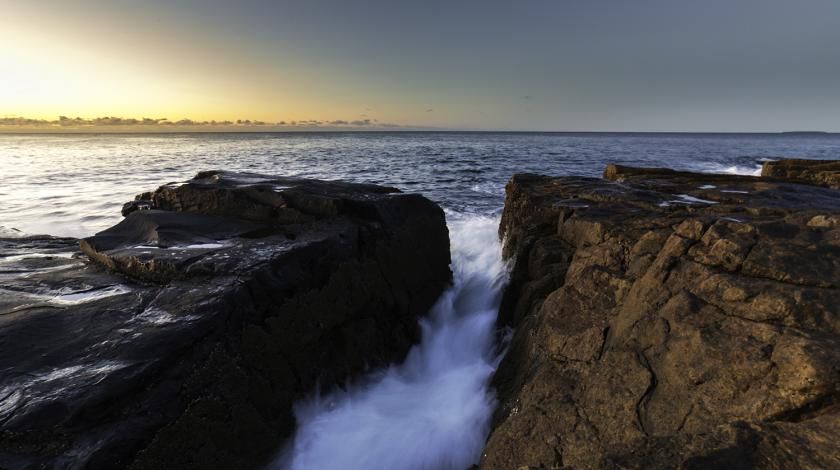Climate Change: Sea to Trees at Acadia National Park
Help researchers add to over 120 years of data, revealing how our reliance on fossil fuels is affecting one of America’s most beautiful places.
The granite mountains and craggy coasts of the islands that make up Acadia are famous for their beauty and their wildlife. This is classic, unspoiled New England. Schoodic Institute at Acadia National Park, our partner, is based near the tip of Schoodic Point, feet away from the crashing surf.
Acadia is home to a stunning diversity of wildlife. It is on a bird “superhighway,” a route heavily traveled by birds that migrate between Canada and South America. Researchers have recorded 23 species of warblers alone here. Additionally, the park’s lakes and coastal waters provide a home for 30 species of fish and a wide array of invertebrates, such as sea stars and urchins.
But global change–like warming temperatures and ocean acidification–are having significant impacts on the park, threatening the diversity of wildlife within. Acadia’s scientists have compiled over 120 years of detailed natural history observations to compare current patterns to. On this expedition, you'll help collect similar data that can be compared to this extended time-series data-set, revealing how Acadia is being influenced by a changing climate. Few places in the country have such a rich pool of observations to draw from and make comparisons to.
Help scientists tell the story of how humans are reshaping Acadia, which they hope will inspire management actions that will help safeguard this iconic National Park.
For more information or to book contact our office (03) 9016 7590 or email
Frank Sanford | OCTOBER 30, 2019 ★★★★★
"The Impact of climate change in Maine"
The growing season in Maine has increased by a month in the past 50 years. What does this mean for migrating birds that feed on berries in Maine? On this trip, you will learn how scientists are trying to measure the impacts of climate change on our reduced bird population. The accommodations are fantastic, only surpassed by the food – a lobster dinner thrown in! Schoodic Institute, located in Acadia National Park, is a beautiful destination along the coast. Finally, the lead scientists and their assistants are knowledgeable, helpful, and accommodating to each individual's needs.
Ranee Duncan | OCTOBER 31, 2018 ★★★★★
"Acadia: Then, Now, and in the Future"
Acadia National Park is remarkable for its beauty, with an almost magical blend of Northern Forest with rugged Maine coastline. I was overdue in revisiting Acadia, and delighted to have the opportunity to experience it while contributing to important scientific research. Our team of volunteers participated in vegetation surveys that will help in understanding how shifts in climate are changing the fruiting of the plants, and that data is being shared as part of a larger study, tracking the movement and habits of birds along the Atlantic Flyway. We also surveyed sections of the rocky and muddy intertidal zones, and spent a smaller amount of time in the lab, identifying invertebrates collected from the vegetation plots. We were led by a team of dedicated and dynamic researchers who were always available to not only assist us with identifying the target species, such as huckleberry and common seaweeds, but also to share their widespread knowledge and love of this inspiring ecosystem. They patiently and appreciatively answered our work-specific as well as far-reaching questions, whether in the lab, the field, or the cafeteria. Accommodations were comfortable, meals were plentiful and customizable, and the campus paths were easy and enjoyable to wander on and off duty. We also enjoyed getting to know this quieter section of the heavily visited park. A National Park Ranger joined us one of the evenings and we learned about the history of scientific observation at Acadia. Knowing we were participating in these continuing studies added meaning to our daily tasks. And lessons in using various natural history phone apps gave us easy tools to continue with citizen science observations at home, in anticipation of our next expeditions in the future!
Jan Kleinman | JULY 2, 2018 ★★★★★
"Why not Acadia and why not trees?"
If you like cool trips rather than hot ones, and if you like hiking in uninhabited, quiet, revealing places, and if you have any interest in trees and how they help us understand our changing planet, this is your trip. You will wear long sleeves most days without any regret. You will visit islands not visited often in recent generations. You will bushwhack- so bring your walking stick! You will learn how to identify trees, what trees and their habitat can show us about our planet, and how you can continue being a citizen scientist back at home using your new skills. I learned a lot and enjoyed myself thoroughly.
-
 Activity Level: Moderate
Activity Level: Moderate -
 Location: Acadia National Park, Maine, United States
Location: Acadia National Park, Maine, United States -
 Lead Scientist:
Lead Scientist:


